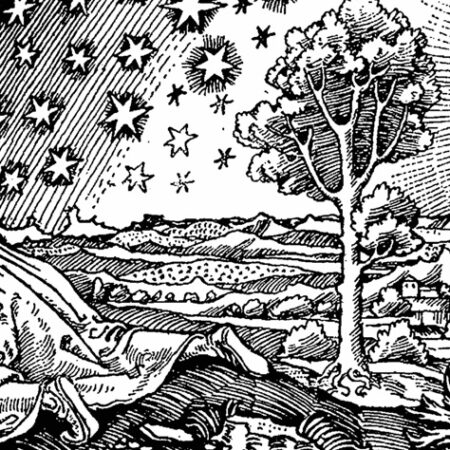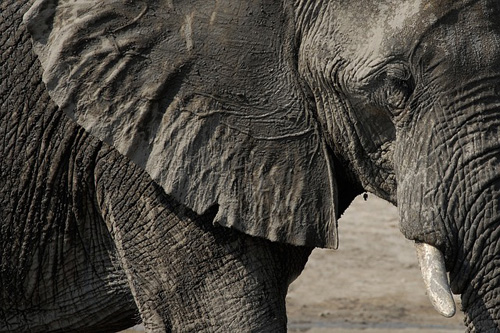by Roger Mock
You probably know the story of the elephant and the blind men which originated long ago in the Indian sub-continent until it crossed the path of many religious traditions including Jain, Buddhist, Sufi, Hindu and Bahá’í. This morning I discovered this poetic retelling from the 19th century by one John Godfrey Saxe. And Saxe, it turns out, lived his last 27 years here in the city of Albany, spent his summers in Saratoga, contributed articles for three Albany papers, published poems in Harper’s and The Atlantic, and was popular on the lecture circuit. The Blind Men and the Elephant remains his best remembered poem:
It was six men of Indostan
To learning much inclined,
Who went to see the Elephant
(Though all of them were blind),
That each by observation
Might satisfy his mind
The First approached the Elephant,
And happening to fall
Against his broad and sturdy side,
At once began to bawl:
“God bless me! but the Elephant
Is very like a wall!”
The Second, feeling of the tusk,
Cried, “Ho! what have we here
So very round and smooth and sharp?
To me ’tis mighty clear
This wonder of an Elephant
Is very like a spear!”
The Third approached the animal,
And happening to take
The squirming trunk within his hands,
Thus boldly up and spake:
“I see,” quoth he, “the Elephant
Is very like a snake!”
The Fourth reached out an eager hand,
And felt about the knee.
“What most this wondrous beast is like
Is mighty plain,” quoth he;
“‘Tis clear enough the Elephant
Is very like a tree!”
The Fifth, who chanced to touch the ear,
Said: “E’en the blindest man
Can tell what this resembles most;
Deny the fact who can
This marvel of an Elephant
Is very like a fan!”
The Sixth no sooner had begun
About the beast to grope,
Than, seizing on the swinging tail
That fell within his scope,
“I see,” quoth he, “the Elephant
Is very like a rope!”
And so these men of Indostan
Disputed loud and long,
Each in his own opinion
Exceeding stiff and strong,
Though each was partly in the right,
And all were in the wrong!
And in case you didn’t quite get the drift, Saxe closed with this moral:
So oft in theologic wars,
The disputants, I ween,
Rail on in utter ignorance
Of what each other mean,
And prate about an Elephant
Not one of them has seen!
Further poking about (thank you, Wikipedia) led my arm chair explorations this morning not only through my own familiar neighborhoods of Albany and Saratoga, but right back to the arm chair itself and into my own living room: the singer Natalie Merchant had set Saxe’s poem to a raucous musical setting in the Jewish klezmer style on her Leave Your Sleep recording, a copy of which sat a few feet away from me on the shelf! In fact, I’m becoming reacquainted with it now as I type.
Was the parable always intended to be applied theologically? Probably so, though not explicitly, as its wisdom clearly extends to all truths and the ease of their misconstrual by the unenlightened human mind.
Ms. Merchant coaxed the tale in a Semitic direction, so I will follow her lead with this ancient midrash commentary on the Hebrew scriptures:
God said to Israel, “Because you have seen me in many likenesses, there are not therefore many gods. But it is ever the same God: I am the Lord your God.” Rabbi Levi said, “God appeared to them like a mirror, in which many faces can be reflected; a thousand people look at it; it looks at all of them.”
(Midrash, Pesikta Kahana 109b-110a)
To see God through the looking glass of human existence is to experience the ineffable –
1. incapable of being expressed or described in words; inexpressible:
ineffable joy.
2. not to be spoken because of its sacredness; unutterable:
the ineffable name of the deity.
This is why in the Jewish tradition one does not bother to try to pronounce the name of God. To see the pointlessness of such an effort is, perhaps, the beginning of wisdom.
This week I listened to a podcast in which a middle-aged woman described a mystical experience from her teenage years, in which she lay in the grass on a summer evening. She recalled feeling her mind diving down into the earth through layers of soil and rock, worms and insects. It led to a profound experience of being one with everything (Is this the most unsatisfying descriptive phrase of all time?) which ultimately changed the direction of her life. The interviewer asked her to expand on that quality of being one with everything. She stumbled a bit with the answer and then settled on, “It was like my entire being was this essence I have never been able to put into words. And I don’t think you can put it into words, because words are the realm of the ego. The ego is a very small thing; it doesn’t even begin to connect with that kind of vastness.”
It’s the blind men of the old tale. That part of us that wants to pin our experience down like a butterfly in an entomological display case, thus removing most of its butterfly-ness (or its elephantine quality). We had better instead sit like Elijah in his cave on the mountain:
And, behold, the Lord passed by, and a great and strong wind rent the mountains, and brake in pieces the rocks before the Lord; but the Lord was not in the wind: and after the wind an earthquake; but the Lord was not in the earthquake: And after the earthquake a fire; but the Lord was not in the fire: and after the fire a still small voice. (1 Kings 19:11-13)
It’s best to release our ideas and stipulations of what G_d is, of what Truth is and to simply live with the questions until a deeper, truer knowing informs our spirit, if not our words. Perhaps that’s what the life of a human being is actually for – a deepening into that Mystery.
And so that’s enough words for now from me…
love and light and mystery,
Roger




